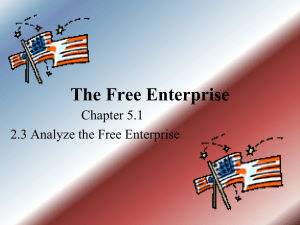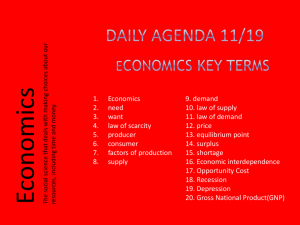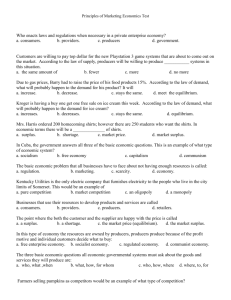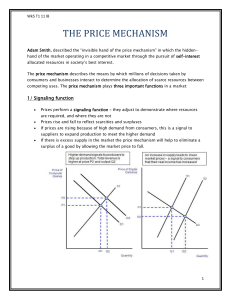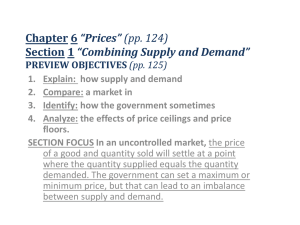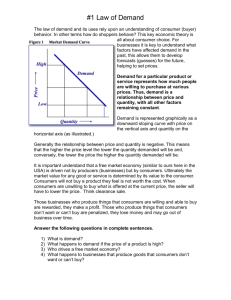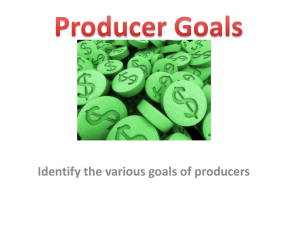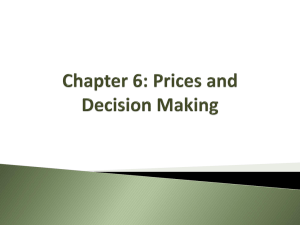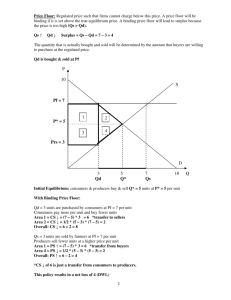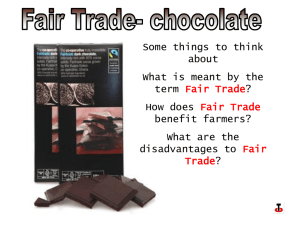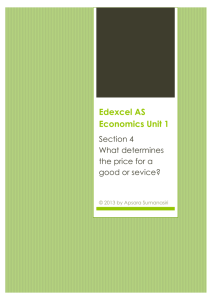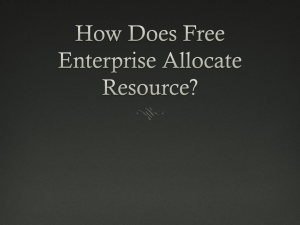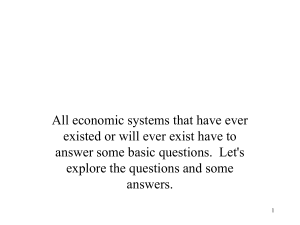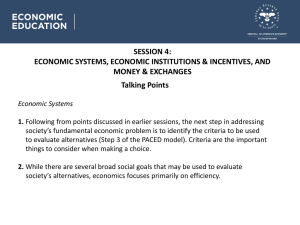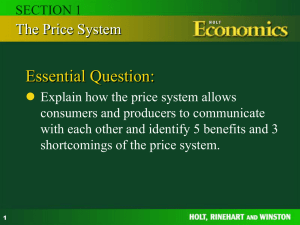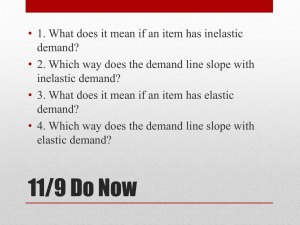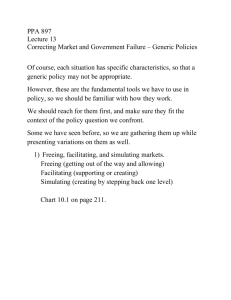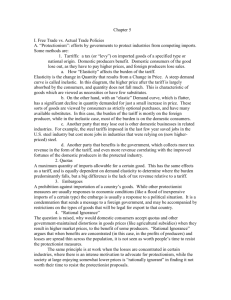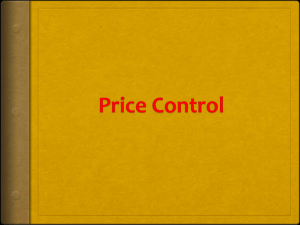Prices Convey Information to Consumers and Producers
advertisement
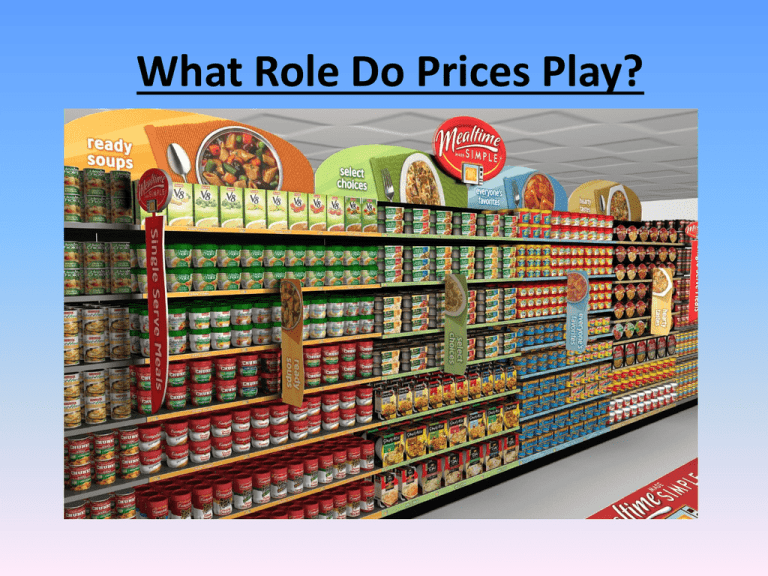
What Role Do Prices Play? Prices Convey Information to Consumers and Producers “Prices are like messengers conveying news” ~Thomas Sowell Prices Convey Information to Consumers and Producers • Consumers- price signals the opportunity cost of a purchase – The next best use for the money you spend – When the opportunity cost of buying is high people tend to think carefully before spending – Most consumers narrow searches by price range – Reflects consumer’s expectation of what will be available at that price Prices Convey Information to Consumers and Producers • Producers- price tells them what consumers want – A way to gauge consumer preferences – Appeal to consumers they hope will buy their products – Use price to send a message about products and their intended markets Prices Create Incentives to Work and Produce • Incentives-matter principle • Price as incentive because of potential for profit • Rising prices motivate production increase • Falling prices motivate decrease of production • Prices in the form of wages motivate workers – High wages inspire job-seeking – Low wages act as disincentive for people to seek work Think/Pair/Share • Think: When home prices increase or decrease, what industries/people are affected or inspired to action? • Pair: With a partner compare and combine your lists of industries/people; then discuss how might they react to a home price increase and a decrease? • Share: Be prepared to share at least one example with the class Prices Allow Markets to Respond to Changing Conditions • Prices give markets the flexibility the need to reach equilibrium even under changing conditions – Hurricanes Katrina/Rita 2005 • By throwing gasoline market into disequilibrium, illustrated the key role that prices play in correcting both shortages and surpluses Prices Allocate Scarce Resources Efficiently • Guide resources to their most efficient uses. – Ex. Dairy products • Yogurt, ice cream, cheese • Greatest demand will buy the most milk in order to make products to meet that demand • Producers automatically allocate milk (scarce resource used to make many different products) to its most valued use Prices in General • When prices are allowed to freely rise and fall to their equilibrium levels, they do an effective job of allocating scarce resources to their best uses. How Government Intervention Affect Markets How Government Intervention Affect Markets The record of price controls goes as far back as human history. They were imposed by the Pharaohs of ancient Egypt. They were decreed by Hammurabi, king of Babylon, in the eighteenth century B.C. They were tried in ancient Athens. —Henry Hazlitt, 1993 Why Governments Intervene in Markets • Occasionally governments intervene in the market in an attempt to influence prices • They do this by placing limits on how high or low certain prices may be. (price controls) Why Governments Intervene in Markets • When persuaded that supply and demand will result in prices that are unfairly high for consumers or unfairly low for producers. – 1970s price controls on gas in response to reduced shipments of foreign oil b/c of crises in Middle East • Set price floors or price ceilings, both affect supply & demand Price Floors Lead to Excess Supply • Price Floor: Minimum price consumers are required to pay for a good or service – Meant to push prices up, ensures benefit for producers – Minimum wage: Government-imposed legal floor on the hourly wage rate • Rationale: in low-skill job markets, supply and demand would drive the equilibrium wage so low that many workers would earn to little to live decently – Result: Excess supply Price Ceilings Lead to Excess Demand • Price Ceiling: maximum price consumers may be required to pay for a good or service. – Meant to enable consumers to buy essential goods or services they wouldn’t be able to afford at the equilibrium price – Often established in response to crises – Rent Control: make it illegal to charge more than a specified monthly amount for rental housing. Introduced in WWII to protect poor families Dealing with Excess Supply and Demand • Price controls prevent market clearing price resulting in excess supply or demand • Shortages rationing: controlled distribution of a limited supply or a good or service – License plate number gas purchases – WWII tires, gas, sugar and other goods • Shortages black market: an illegal market in which goods are traded at prices or in quantities higher than those set by law. Think/Pair/Share • Think: What are some examples of a price ceiling leading to excess demand, or a price floor leading to excess supply? • Pair: With your partner develop one example into a brief story. • Share: Be prepared to share your example or story with the class.
